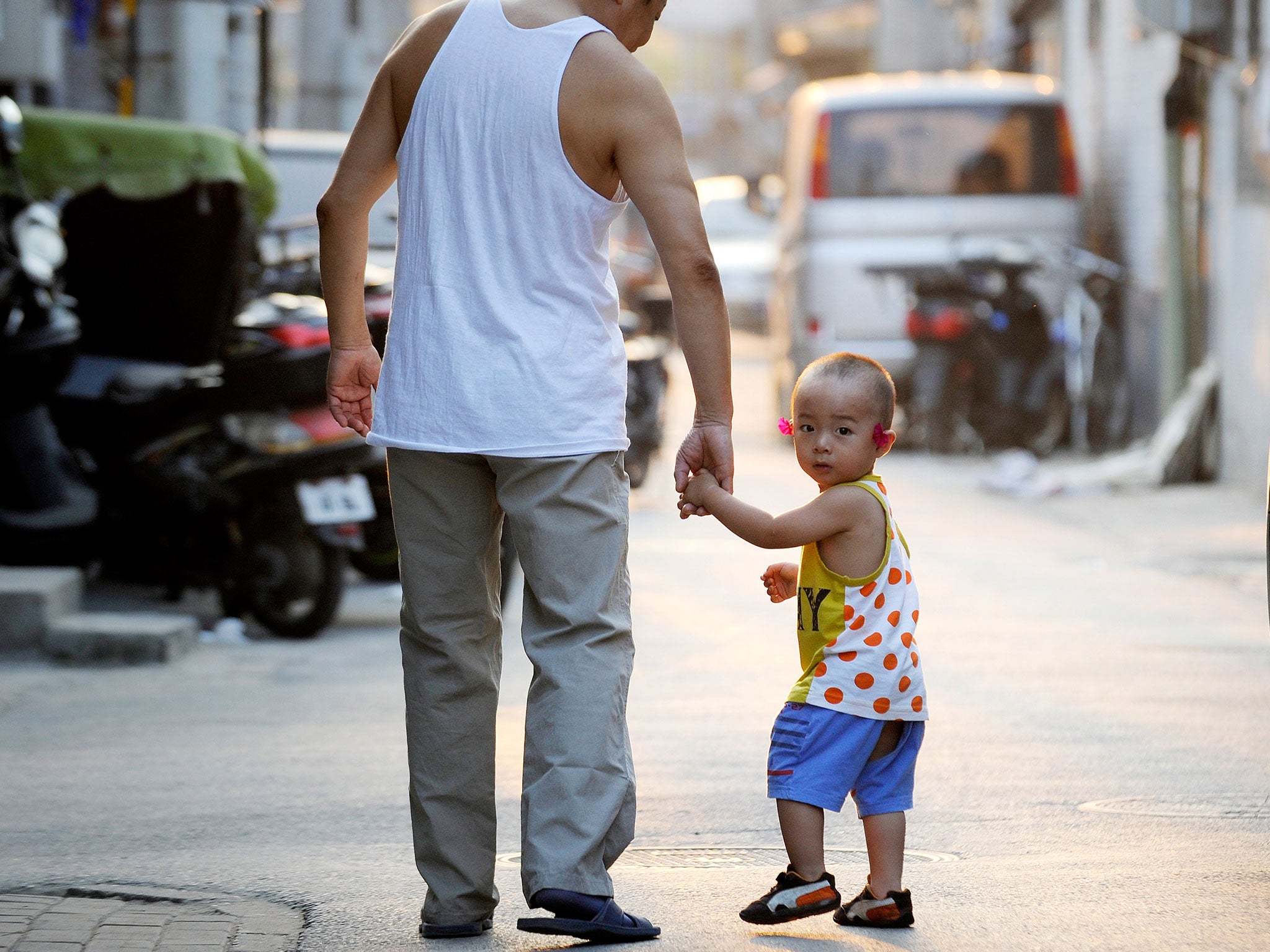China may scrap one-child policy to curb demographic time bomb
The country is dealing with an ageing population and a dwindling labour force

Some three decades after China launched its highly controversial policy restricting families to having one child, the government may soon allow a two-child policy to curb a demographic time bomb.
Regarded as one of history’s biggest experiments in state-enforced engineering, China’s Communist Party brought the one-child policy into law in 1980 in an attempt to stem sky-rocketing population growth.
The law is believed to have resulted in millions of forced abortions, and has left China with the combination of a rapidly ageing population, a shallow labour pool and an imbalance in the sex ratio. The result is a demographic time bomb.
To tackle this issue, China may hastily introduce a two-child policy “as soon as the end of the year”, a government source told the China Business News.
Liang Zhongtang, a demographer from the Shanghai Academy of Social Science, said the policy should have been abolished “long ago”.
The internet – albeit restricted in China – has galvanised public opposition to the law, Zhongtang told The Guardian, arguing that the matter hinges on human rights and reproductive freedom.
A woman cycles pass a billboard encouraging couples to have only one child (Image: Getty)
Read more: How does a lack of siblings affect your personality?
However, the government appears to be downplaying the pressing issue, with the National Health and Family Planning Commission telling the state-run China Daily that no timetable has been set for allowing couples to have a second child.
The most recent UN report on ageing populations revealed that while China is the world’s most populous nation, the decline in birth-rates since the 1990s means its population is also ageing faster than many other developing nations. By 2050, China will have nearly 440million over-60s, according to UN estimates.
Meanwhile, the working age population fell by 3.71 million, the National Bureau of Statistics reported earlier this year. The labour pool of 16 to 59-year-olds has been dropping since 2012, and has coincided with a downturn in economic growth and a rise in unemployment, Bloomberg reported.
On top of this, there are 33 million more men than women in China, and the contraception mothers use is under government control. Women with one child must use an IUD, and those with two children can face sterlisation, according to research by the University of Leicester.
If the new policy is introduced, it will follow the gradual relaxation of the one-child law, as ethnic minority couples, families from rural areas with a first-born girl, and only-child parents, have gone unpunished despite having a second child.
However, for parents who have lost their only child, the policy has come too late.
Huo Daozhong, 58, whose only son took his life in 2013, said: “It’s too late. The policy has nothing to do with us now.”
Subscribe to Independent Premium to bookmark this article
Want to bookmark your favourite articles and stories to read or reference later? Start your Independent Premium subscription today.

Join our commenting forum
Join thought-provoking conversations, follow other Independent readers and see their replies